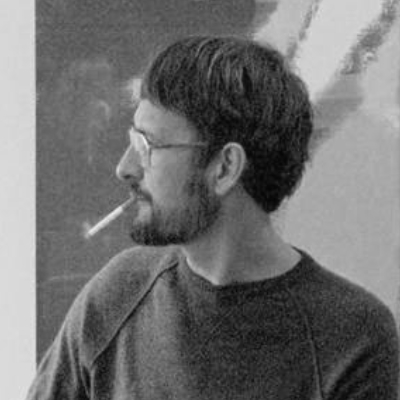Daniel Richter

The German artist Daniel Richter first came to prominence in the 1990s when he transitioned into fine art from the world of music, where he began his career designing posters and record sleeves for bands. His early paintings were abstract, characterised by intensely colourful forms that lie somewhere between graffiti and intricate ornamentation. Figures began appearing in his works around 2002, often inspired by reproductions from newspapers or history books and rendered in bright colours that create an atmosphere of heightened awareness and artificiality. Ever the innovator, his recent works tread a path between figuration and abstraction, typified by the chaotic entanglements of fragmented bodies against simplified chromatic backgrounds.
Influenced by the legacy of Symbolists such as James Ensor and Edvard Munch, Richter combines motifs from art history, mass media and pop culture to create idiosyncratic, surreal worlds. These can sometimes be read in political terms, as in works that reference themes of immigration or surveillance, but they evade any single interpretation. He uses vivid chromatic contrasts and abstracted patterning to convey a disquieting emotional tenor, heightened by the temporal and spatial indeterminacy of scenes that refuse to resolve into a coherent time, place, or even pictorial space. The same is true of his contoured colour fields, which are reminiscent of maps in an atlas but do not correspond to any specific region. The artist describes them as an ‘encirclement, a sort of pressing, entwining, squeezing’, which conveys a strong sense of confrontation and flux.
In Richter’s recent large-scale canvases, anthropomorphic figures are set against flat gradations of colour that recall polychromatic fantasy landscapes but evade spatial orientation or understanding. As he explains, ‘My concern is with the surface, this flat, tangled, never-changing scheme of figure constellations, in and out.’ Outlined expressively in black oil stick, the splayed limbs and gaping mouths convey an aggressive carnality that is heightened by Richter’s bold use of contrasting colour. ‘The dynamic in my work is mainly based on pushing and shoving, or on elements that are being confronted by each other – mingling, pushing, pulling,’ he says. Despite the underlying violence, the works convey a touching sensuality and beauty that counterbalances their restless energy.
Born in Eutin, Schleswig-Holstein, Richter lives and works in Berlin. He studied at the Hochschule für bildende Künste in Hamburg from 1992–96 under Werner Büttner – one of the protagonists, along with Martin Kippenberger, of the revival of expressive trends in painting during the 1980s – and later worked as assistant to Albert Oehlen. Comprehensive solo exhibitions of his work have been held at the Kunsthalle zu Kiel and Kunstsammlung Nordrhein-Westfalen, Düsseldorf (both 2001); National Gallery of Canada, Ottawa (2005); Hamburger Kunsthalle and Kunstmuseum Den Haag (both 2007); CAC Málaga and Denver Art Museum (both 2008); and Kestner Gesellschaft, Hanover (2011). More recently, the Schirn Kunsthalle, Frankfurt hosted a retrospective (2014), while a monographic exhibition travelled to Camden Art Centre, London; 21er Haus, Vienna; and Louisiana Museum of Modern Art, Humlebæk, Denmark (2016–17). Richter’s work was also shown in the group exhibition Radical Figures: Painting in the New Millennium at the Whitechapel Gallery, London, in 2020.
